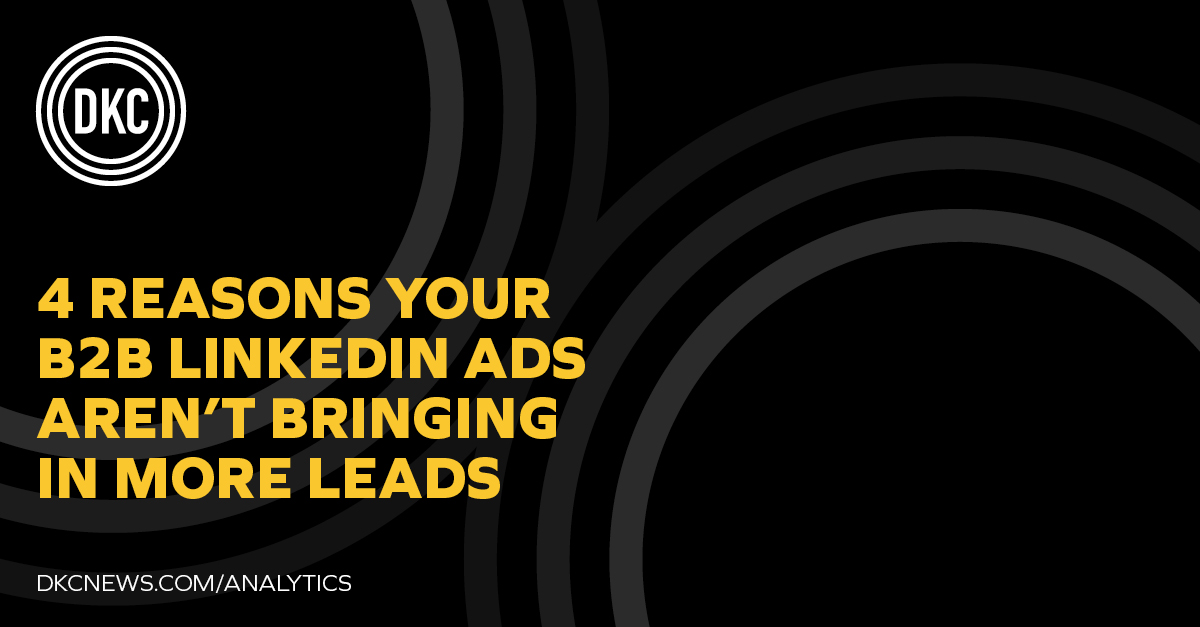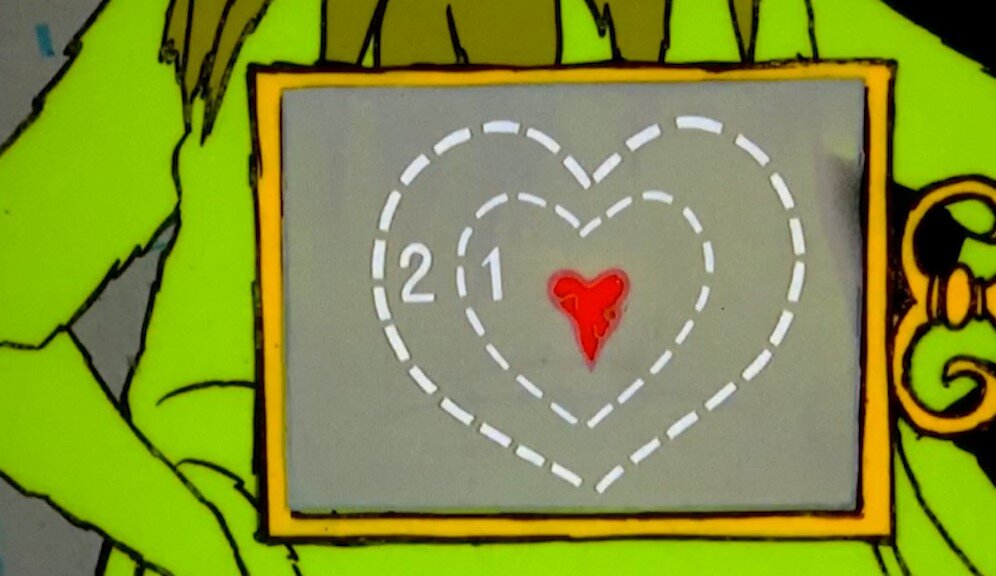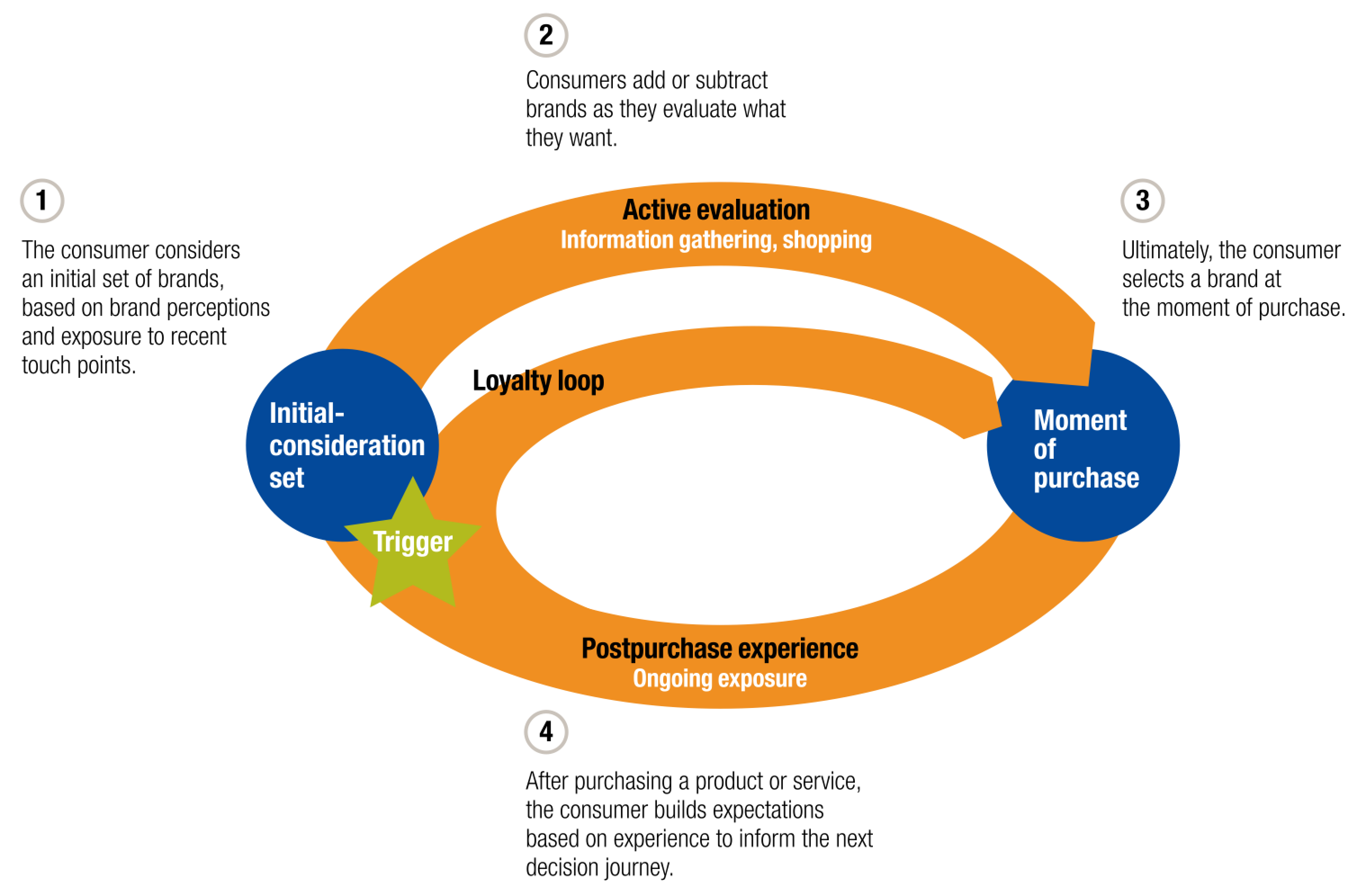Oct 27, 2022
Blog

Share this Blog Post
Are you wistfully yearning for the day to come when cold calls become a thing of the past? When your business development pipeline becomes so full of leads that your sales team begs and pleads with you to, “stop being so successful with your marketing,” and to give them a break from all those high-quality leads you are bringing in?
Okay…this likely isn’t going to happen…but that doesn’t mean that you can’t strive for this level of success. LinkedIn Ads is the most universal advertising platform for B2B lead generation, and if you are having difficulty utilizing this medium for your benefit, you’ve come to the right place. While incredibly lucrative, LinkedIn advertising is a balancing act. Using the platform for “set it and forget it” campaigns is unlikely to help you achieve your quarterly KPI’s.
Even the most seasoned professional is bound to make mistakes. With that in mind, here are four of the most common mistakes that lead to high B2B lead costs on LinkedIn…
1. Automatic bidding dependency
Ever wonder why your CPM is INCREDIBLY high when advertising on LinkedIn? Trying to figure out ways to bring these costs down? Manual bidding is the first thing you should look at. Automatic bidding is LinkedIn Lite. Mastering manual bidding can make you a pro. You can choose your bidding strategy every time you create a campaign on LinkedIn. The default position is “maximum delivery” which LinkedIn claims gets you the most bang for your buck. We rarely find this to be the case. Placing manual bids on the cost-per-view, CPC or CPM has allowed us to drastically lower our costs. This requires close attention throughout the process (and if you’d like to speak with us about how we manage these processes, please send us a note) and in-depth reporting into down-funnel metrics.

(When I Googled professional…this came up)
If the above still isn’t working, consider incorporating a cost-cap in place of the manual bidding. While we’ve seen less success with this method compared to manual bidding, it can help bring down costs…but it may also hurt your ability to spend.
2. (Audience) size matters
We see this far too often…clients tell us EXACTLY who they want to be targeting and aren’t willing to expand the audience. There are 774+ million LinkedIn members and over 55 million companies represented on the platform. Just because someone doesn’t fit the specific job title you are targeting doesn’t always mean that they don’t have a say in the business decision.

(Live look at your audiences compared to their ideal size)
If you’re seeing audience sizes below 20,000, you should consider branching out. Three core areas of focus to expand your audiences can include:
- Member Groups
- Member Skills
- Education (degrees)
3. Only running in-feed promotions
We get it. Those videos and still images that you and the creative team spent loads of blood, sweat and tears are great. We are super proud of you. Seriously.
Don’t tell that creative team we told you this but…. excellent creative in your lead generation ads shouldn’t be the only thing delivering on a platform like LinkedIn. Here are three new ways to reach your target audiences while not breaking budget for creative assets:
- Message Ads – Basic InMail to your target audience
- Conversation Ads – Imagine your message ads but on steroids. You send your InMail messages to your audience and you create a conversation flow that takes these users on a journey.
- Document Ads – A relatively new optimization for your campaigns, you can now merge your white paper with an actual ad and serve a lead generation form. This will look like the document you are already carroting people with, but if your white paper is thorough and the kind of thing that people will want to read, there is a strong possibility that they are willing to give you their contact information to read it!
4. Valuing leads only based on low cost form fills
When you think about a lead generation campaign, it’s important to constantly be asking yourself how your prospective audiences come to their decision. Very rarely is a decision reached solely based on your brilliant whitepaper. Often, you’ll need to be reaching out and grooming your audiences for the moment when they are most likely to need your product / service. Enter the consumer’s decision journey.

Traditional “funnels” of engagement begin with a large awareness audience and then slowly chip away portions of the audience until a purchase is made. Instead, the modern consumer decision journey incorporates an initial trigger that alerts an individual and/or company that they need to start looking at a specific product or service. They then enter an active evaluation period where they, in an ideal world, reach the moment of purchase. (We’ll come back to the post-purchase experience and loyalty loop another day.)
You want to be in your audience’s mind when that all-important trigger occurs. Lead generation campaigns alone probably won’t accomplish this goal. Instead, brand awareness and video views need to be utilized to help tell your story (usually at a more efficient CPM) well before an individual is ready to buy what you’re selling.
Once you can get the buy-in internally to run awareness campaigns, also consider reaching future decision makers and entering them in this process. People who may not necessarily be at the level you want to target but have a job title or experience that tells you they could be on that track.
In Conclusion:
Focusing on the four above strategies will mean more efficient campaigns and better scale. LinkedIn can be daunting when you consider the costs compared to other social media ad platforms. Knowing the platform’s bells and whistles is your best way to become an expert in the field of B2B performance marketing.
If you’re interested in learning more about our LinkedIn advertising practice fill out this form or email me at Nathan_adams@dkcnews.com.